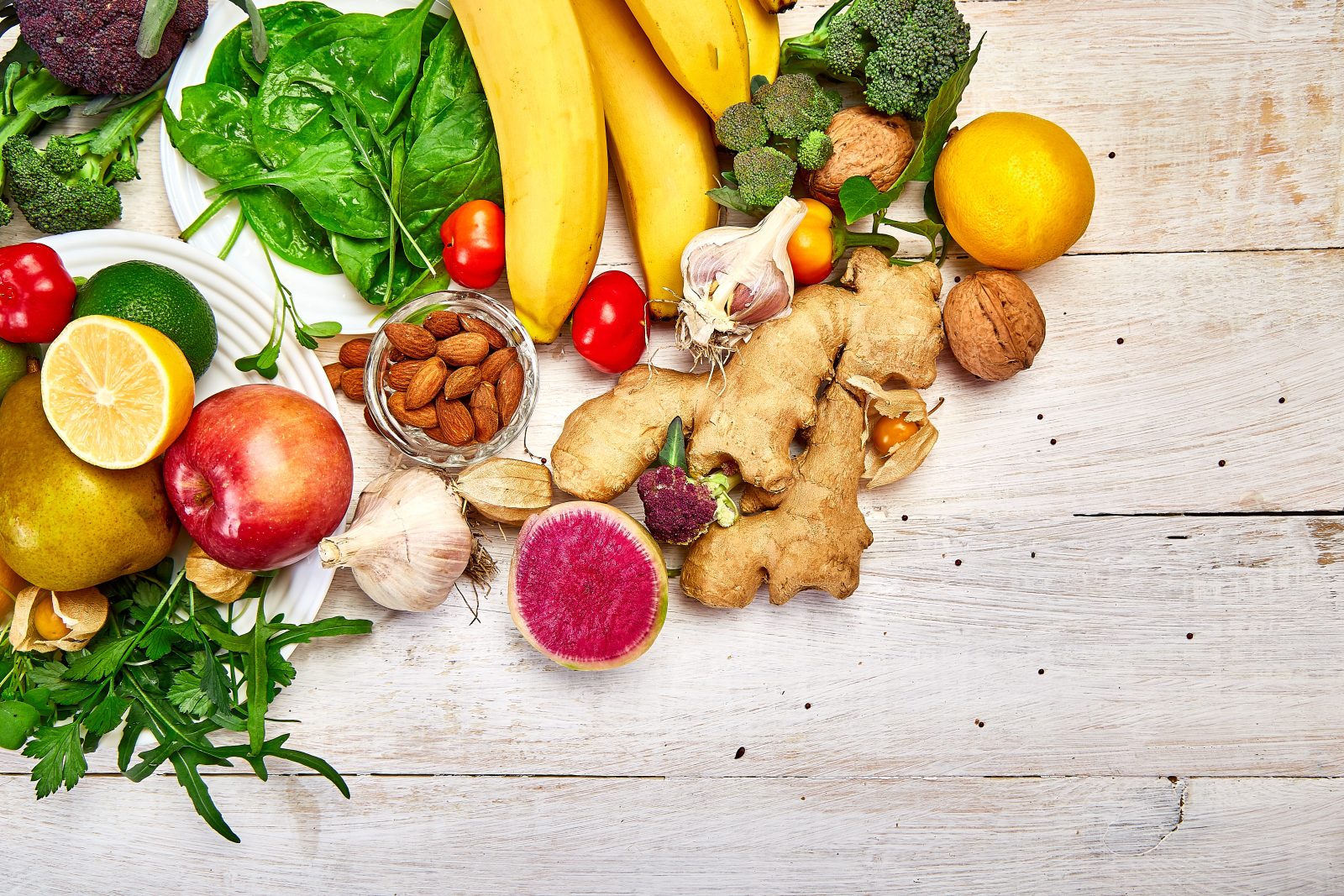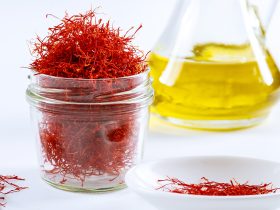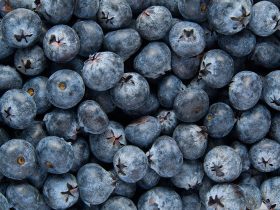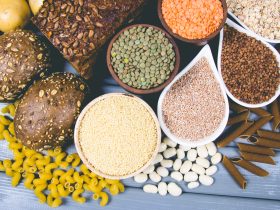In the vast landscape of nutritional jargon, “antioxidants” stands out as a buzzword frequently thrown around. But let’s delve deeper: What exactly are antioxidants, and how do they wield their influence on your body? Where can you find them in healthy diets, and what’s the optimal intake?
From the famed superfoods like acai berries adorning your morning smoothie to the more humble sources such as the ketchup accompanying your burger, a myriad of foods contains antioxidants. While not all of them boast about it, numerous foods, particularly plant-based ones, harbor these remarkable compounds.
Now, you’ve likely heard the health claims associated with antioxidants, ranging from preventing heart disease to enhancing skin radiance, fortifying the immune system, and even potentially warding off cancer.
But are antioxidants truly as miraculous as they’re made out to be? What role do these seemingly magical compounds play, and why the persistent buzz?
As is customary in the nutrition domain, unraveling the intricacies of antioxidants is a substantial task. Their prominence rose in the 1990s, as researchers delved into numerous studies exploring their potential benefits.
In 1997, the U.S. Food and Drug Administration (FDA) laid down guidelines for how companies could label their products with the term “antioxidant” in connection with nutritional claims.
Yet, even a quarter-century later, scientists continue to refine their understanding of these substances and their potential health impacts. Despite the hype surrounding antioxidant-laden foods, drinks, and supplements in headlines and marketing claims, they aren’t a cure-all for your dinner plate or cup. (Apologies, but that antioxidant-rich pomegranate juice in your favorite summer cocktails isn’t a magic elixir.)
Nevertheless, dismissing the significance of antioxidants in your diet would be premature. Indeed, foods rich in antioxidants can contribute to supporting your overall health and well-being.
What are antioxidants?
So, what exactly are antioxidants? These powerful compounds, commonly found in fruits and vegetables, play a crucial role in defending the body against oxidative stress – a process linked to the development of various diseases.
Now, let’s break it down. To understand antioxidants, it’s essential to grasp another wellness buzzword: free radicals.
“Free radicals” is a broad term for highly reactive compounds that can attach to and damage normal cells in the body, such as DNA. In technical terms, free radicals are molecules in your body with unpaired electrons, making them unstable and prone to binding with other compounds.
Your body generates free radicals during activities like digestion, exercise, and in response to factors like UV light, pollution, and smoking.
While some free radicals are natural byproducts with important functions, excessive production can lead to problems. The reactive nature of free radicals causes damage through oxidative stress – a factor believed to contribute to conditions like cancer, heart disease, diabetes, Alzheimer’s, Parkinson’s, cataracts, and age-related macular degeneration. That’s why it is paramount to try ways to relieve stress and lower its levels before it starts affecting your health.
Enter antioxidants – the superheroes in this narrative. What’s their role? Acting as free radical scavengers, antioxidants combat oxidative stress by neutralizing these unstable molecules. Their mechanisms include lending an electron to a free radical to reduce its reactivity or binding to substances to prevent further reactions.
By stabilizing free radicals, antioxidants not only protect cells and tissues but also enhance the efficiency of your immune system. This process helps mitigate chronic inflammation – a known catalyst for health issues like cardiovascular disease and cancer. Additionally, antioxidants may contribute to DNA repair and the maintenance of cell membranes.
In essence, antioxidants serve as your shield against the potentially harmful effects of oxidative stress. So, whether you’re enjoying a colorful array of fruits or incorporating antioxidant-rich vegetables into your diet, you’re actively supporting your body’s defense mechanism. Embrace the power of antioxidants and let them play a vital role in your journey to overall well-being.
Types of antioxidants and where to find them
While your body produces some antioxidants naturally, there are instances when this internal defense isn’t sufficient. External antioxidant intake becomes important when the body generates an excess of free radicals it can’t manage.
So, where can you find these invaluable antioxidants? Antioxidants are not exclusive to trendy fat-burning superfoods – they are abundant in a diverse range of foods. Fruits, vegetables, seafood, whole grains, and meats all boast varying levels of antioxidants.
Additionally, you can find them in supplements, such as immune-boosting vitamins, specific protein powders, meal replacements, and skincare formulations.
Now, let’s explore some key sources of these vital compounds:
Essential Antioxidant Vitamins
- Vitamin C: Boost your immune system with this vitamin found in Brussels sprouts, red cabbage, and peppers.
- Vitamin E: Nourish your body with almonds, sunflower seeds, and olive oil for a dose of this antioxidant.
- Vitamin A: Derived from beta carotene, you can find this essential antioxidant in collard greens, sweet potatoes, and cantaloupe.
Essential Antioxidant Minerals
- Selenium: Fortify your system by consuming Brazil nuts, pork, and turkey.
- Zinc: Enhance your antioxidant intake with oysters, beef, and pumpkin seeds.
Non-essential, Yet Impactful Antioxidants
- Lycopene: Discover this carotenoid cousin of beta carotene in watermelon, tomato sauce, and ketchup.
- Lutein and Zeaxanthin: Found in spinach, romaine lettuce, and Swiss chard, these antioxidants contribute to your well-being.
- Chlorogenic Acid: Enjoy the benefits of coffee, apples, and eggplants, rich in this antioxidant.
- Flavonoids: Berries, tea, and citrus fruits are excellent sources of these impactful compounds.
- Ergothioneine: Available in mushrooms, tempeh, oats, and kidney beans.
Understanding the diverse array of antioxidants available in both essential nutrients and non-essential sources allows you to craft a balanced and varied diet.
Whether you prefer a colorful plate of fruits and vegetables or choose to supplement wisely, incorporating antioxidants into your routine is a proactive step toward supporting your body’s resilience and overall health.
Understanding the Health Benefits of Antioxidants
Antioxidants play a pivotal role in combating oxidative stress, a process linked to a myriad of health problems. While it’s essential to recognize that multiple factors influence disease risk, research consistently points to the broad health benefits associated with increased antioxidant consumption.
However, it’s worth noting that these benefits may stem from a combination of substances in antioxidant-rich foods, and other lifestyle or dietary factors could contribute as well, according to the National Center for Complementary and Integrative Health (NCCIH).
Let’s delve into some noteworthy research that highlights the potential link between high antioxidant intake and a reduced risk of various diseases:
Longevity
In a study published in the European Journal of Nutrition, 23,595 Americans were categorized based on antioxidant consumption.
The results showed that those with the highest antioxidant intake had a remarkable 21% lower risk of mortality over a 13-year period compared to those with the lowest intake.
It’s important to consider that this study relied on a 24-hour dietary recall, reflecting participants’ recollections of just one day of eating.
Diabetes and Stroke Risk
Research suggests that high levels of dietary antioxidants may lower the risk of developing type 2 diabetes and stroke. The Mediterranean diet may lower type 2 diabetes risk since it contains foods rich in antioxidants and more.
The potential protective effects of antioxidants extend beyond general health, targeting specific conditions with notable outcomes.
Cancer Prevention
A meta-analysis of 19 studies, encompassing over 700,000 individuals, published in Critical Reviews in Oncology/Hematology indicates that a diet rich in antioxidants may reduce the overall risk of cancer.
Significant reductions were observed, particularly in colorectal, endometrial, and gastric cancers.
Disease-Specific Associations
While establishing specific cause-and-effect relationships can be challenging, some antioxidants show associations with lower risks of particular diseases:
- Flavonoids: Linked to a reduced risk of heart disease and potentially Alzheimer’s disease.
- Lycopene: Associated with a lower risk of aggressive prostate cancer.
- Beta-carotene: Connected to a lower risk of breast cancer, particularly estrogen receptor-negative breast cancer.
It’s crucial to recognize that much of this research reveals correlations rather than definitive cause-and-effect relationships. While higher antioxidant intake appears linked to lower disease risk, it’s not a substitute for medical care.
Factors beyond antioxidants contribute to disease development, including genetics. If you’re interested in optimizing your health, consult with your healthcare provider. Discuss your specific health history, risk factors, and the potential role that antioxidants may play in enhancing your well-being.
Understanding the nuanced relationship between antioxidants and health is a valuable step towards a more informed and proactive approach to healthcare.
A Comprehensive Guide to Antioxidant Intake
To harness the benefits of antioxidants, you have two primary options: through food and supplements. While both avenues exist, experts overwhelmingly advocate obtaining antioxidants from whole foods due to the numerous advantages associated with a well-rounded diet.
Maximizing Antioxidants Through Foods
Understanding the intricate relationship between antioxidants and health requires acknowledging the complexity of antioxidant-rich foods.
Studies can’t definitively isolate the impact of antioxidants alone, as these foods contain a myriad of compounds, potentially thousands, each with antioxidant properties. Various antioxidants and other substances within a single food item, like tomatoes, work synergistically to provide nourishment.
Diverse and Colorful Diet
To unlock the benefits of different phytonutrients, focus on consuming a variety of antioxidant-rich foods.
Berries, greens, root veggies, nuts, whole grains, and coffee constitute powerful whole-food packages that offer not only antioxidants but also essential vitamins, minerals, carbohydrates, fiber, and water. Including an array of antioxidant-rich foods in your daily diet is a holistic approach to overall well-being.
Recommended Daily Allowances (RDAs)
For antioxidants classified as essential nutrients, RDAs serve as guidelines for planning intake. Selenium, for instance, has an RDA of 55 micrograms per day.
For nutrients like zinc, vitamin A, vitamin C, and vitamin E, U.S. Dietary Guidelines for Americans provide RDAs based on age and sex. Monitoring food labels can help tally essential nutrient intake.
Non-Essential Antioxidants
For antioxidants not categorized as essential nutrients, there’s no standardized daily recommended amount. Instead of fixating on a specific quantity, prioritize incorporating various antioxidant-rich foods into your diet.
Simple dietary choices, like enjoying berries for breakfast or savoring citrus or green tea, can elevate antioxidant consumption.
Diversity is Key
Nourishing your body with a diverse range of antioxidant sources is crucial, as different antioxidants often work more effectively in combination. Aim for a colorful variety of foods high in antioxidants to ensure a broad spectrum of health benefits.
Navigating Antioxidant Supplements
Balanced Diet Adequacy
For the majority, maintaining a balanced diet suffices to meet antioxidant needs. The evidence supporting the health benefits of consuming ample fruits and vegetables is robust.
Supplements and Disease Prevention
Unlike whole foods, antioxidant supplements don’t demonstrate the same level of effectiveness in preventing diseases. Large clinical trials indicate that antioxidant supplements, including beta-carotene and vitamin E, do not significantly reduce the risk of heart disease and cancer.
Potential Harm and Interactions
There is evidence suggesting potential harm, especially in high doses of antioxidant supplements.
Some studies link high doses to increased risks of specific diseases, such as lung cancer with beta-carotene and prostate cancer with vitamin E. Additionally, antioxidant supplements may interact with certain medications, posing potential risks.
Consultation with Healthcare Providers
Before considering any supplement, consult with your doctor to assess its necessity and potential interactions with medications. Keep in mind that supplement regulation differs from pharmaceutical drugs, making it essential to ensure the quality and safety of the product.
Exercise and Natural Antioxidant Production
Incorporating exercise into your routine, without overtraining, may enhance the body’s natural production of antioxidants.
In conclusion, prioritizing a diverse and colorful diet filled with antioxidant-rich foods is a practical and effective approach to supporting your body’s well-being. While supplements may have a role in certain cases, their necessity should be carefully evaluated with the guidance of healthcare professionals.
















Find Us on Socials